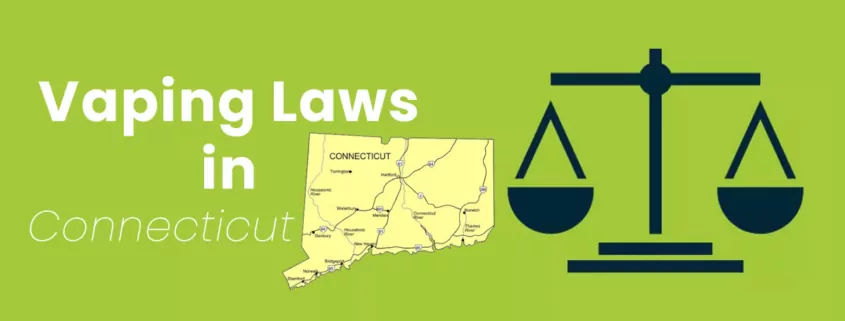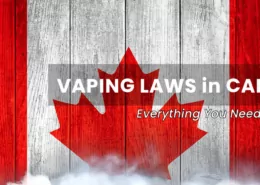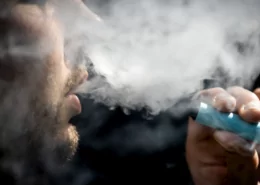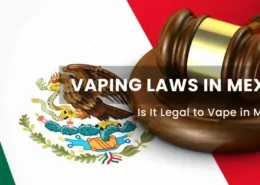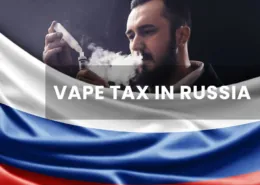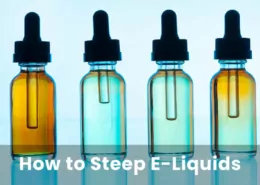Vaping Laws in Connecticut – Is it Legal to Vape in Connecticut?
Updated: Jun / 2025
Connecticut has established a robust and evolving framework of laws to regulate the sale and use of vaping products, including e-cigarettes, vape pens, and other electronic nicotine delivery systems (ENDS). Driven by a strong commitment to public health, particularly the prevention of underage access and use, the Nutmeg State combines strict age restrictions, comprehensive public use prohibitions, specific taxation policies, and detailed retailer responsibilities.
As of mid-2025, understanding these multifaceted regulations is crucial for consumers, retailers, and manufacturers. This guide provides an in-depth look at Connecticut’s current vaping laws, incorporating recent legislative updates and authoritative sources to help you navigate the legal landscape with clarity.
The Legal Foundation of Vaping Laws in Connecticut
At the core of Connecticut’s approach to vaping is a clear focus on preventing youth initiation, supported by both state and federal law, alongside specific definitions that categorize these products.
Minimum Legal Sales Age (MLSA): Strictly 21
Connecticut rigidly enforces a minimum legal sales age of 21 for all tobacco and nicotine products, which explicitly includes all e-cigarettes and vapor products. This “Tobacco 21” standard, effective since October 1, 2019, aligns Connecticut with federal legislation aimed at creating a uniform age limit nationwide to curb youth access. Retailers are legally mandated to verify the age of any purchaser appearing to be under 30 years old by checking a valid government-issued photographic identification.
Selling, giving, or delivering electronic nicotine delivery systems or vapor products to individuals under 21 is a serious offense, as outlined in Conn. Gen. Stat. § 53-344b. Penalties for retailers can be substantial, escalating with subsequent offenses:
- First offense: $300 fine.
- Second offense (within 24 months): $750 fine.
- Third and subsequent offenses: $1,000 fine and potential license suspension or revocation.
Employees directly responsible for an illegal sale can also bear personal liability. Minors under 21 caught attempting to purchase or found in possession of vaping products may face fines (e.g., $50)1 and other consequences like mandatory cessation programs or community service.
Defining “Electronic Nicotine Delivery Systems” and “Vapor Products”
Connecticut law provides clear definitions to ensure comprehensive coverage. An “electronic nicotine delivery system” (ENDS) is defined as any electronic device used to simulate smoking in the delivery of nicotine or other substances to the person inhaling from the device. This includes e-cigarettes, e-cigars, e-pipes, vape pens, e-hookahs, and any component, part, or accessory of such a device, whether sold separately or not2. A “vapor product” is broadly defined as any noncombustible product that employs a heating element, power source, electronic circuit, or other electronic, chemical, or mechanical means to produce a vapor from a solution or other substance, regardless of whether it contains nicotine. These definitions explicitly exclude products approved by the FDA for therapeutic purposes when used under medical supervision.

Where Vaping is Prohibited: Public Use Restrictions
Connecticut has significantly expanded its clean indoor air laws to include vaping, aiming to protect the public from secondhand aerosol exposure and denormalize the use of these products in shared environments.
Connecticut Clean Indoor Air Act: Comprehensive Vaping Ban
The Connecticut Clean Indoor Air Act (CCIAA), as per Conn. Gen. Stat. § 19a-342a(b), was amended to explicitly include e-cigarettes and vapor products under its definition of “smoking.” This means vaping is prohibited in most indoor public places and places of employment where traditional smoking is also banned. This comprehensive ban, effective since October 1, 2019, covers a wide array of venues:
- All state government buildings, including platforms and shelters of public transit stations.
- Healthcare institutions (hospitals, clinics, nursing homes).
- Retail food stores (grocery stores).
- Restaurants and bars (with a limited exception for designated outdoor smoking sections of bars that meet specific criteria).
- Business establishments and private worksites (as per Conn. Gen. Stat. § 31-40q, which bans vaping in all private-sector workplaces without exemption for vape lounges or tobacco shops).
- Hotels and motels (a minimum of 75% of rooms must be smoke/vape-free).
- Correctional facilities.
- Public transit.
Educational Institutions and Childcare Facilities
A critical focus of the public use ban is the protection of children and young adults. Vaping is strictly prohibited:
- Within any school building or on school grounds at all times (K-12, public and private).
- On the grounds of any public or private college or university.
- In all childcare facilities.
Outdoor Proximity Rules and Signage
The CCIAA also mandates that smoking and vaping are prohibited within 25 feet of doorways, operable windows, or air intake vents of buildings where smoking/vaping is banned indoors. This “buffer zone” aims to prevent aerosol from drifting into these smoke-free environments. Businesses are required to post “No Smoking or Vaping” signage that meets Department of Public Health specifications at entrances and other appropriate locations. Failure by businesses to enforce these rules can result in fines (e.g., $250)3.
While there isn’t a statewide ban on vaping in all outdoor public parks, many municipalities have enacted their own local ordinances to this effect.

Selling Vaping Products: Retailer Regulations and Licensing
The sale of vaping products in Connecticut is a regulated activity, with specific requirements for retailers to ensure compliance and prevent underage access.
Mandatory Retailer and Manufacturer Registration
All retailers intending to sell ENDS or vapor products in Connecticut must obtain an electronic nicotine delivery system certificate of dealer registration from the Department of Consumer Protection (DCP). This registration is subject to annual renewal. Similarly, entities that mix, compound, or repackage e-liquids are considered manufacturers and require a separate manufacturer registration, also subject to annual renewal and facility inspections. Operating without valid registration can lead to civil penalties up to $1,000 per violation.
Product Handling, Display, and Sales Practices
- No Self-Service Displays: Connecticut prohibits self-service displays of vaping products, except in facilities where entry is restricted to individuals 21 years of age or older. In general retail environments, all such merchandise must be stored behind the counter or in locked cabinets accessible only by employees.
- Signage: Retailers must post state-provided signage regarding age restrictions near points of sale, with specific font size requirements (no smaller than 48-point).
- Online and Delivery Sales: For online or mail-order sales of e-cigarettes and vapor products to consumers in Connecticut, dealers must ensure robust age verification. This includes verifying the purchaser is 21 or older at the time of purchase (often using third-party identity validation) and ensuring that a person aged 21 or older signs for the package upon delivery, presenting valid government-issued photo ID. Shipping labels must clearly state: “CONTAINS AN ELECTRONIC NICOTINE DELIVERY SYSTEM OR VAPOR PRODUCT—SIGNATURE OF A PERSON AGE 21 OR OLDER REQUIRED FOR DELIVERY”.
Ecigator is one of the well-known vape brands spun off from FM Technology Co., Ltd, it’s an ISO-certified disposable vape manufacturer for OEMs, ODMs, and OBM since 2010. The founder team comes from top firms with more than 10 years of experience in the vaping industry and has devoted thousands of hours to providing users with a better and better experience.
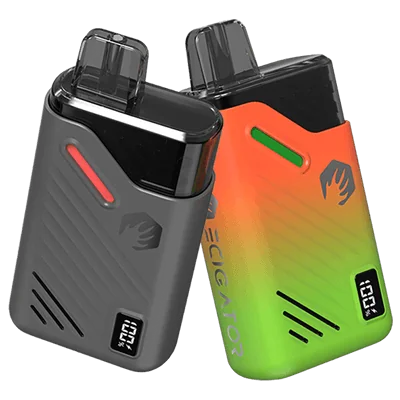
18K Disposable Pod Kit
Disposable Pod Kit – 18ml changeable pod with 650mAh rechargeable battery.
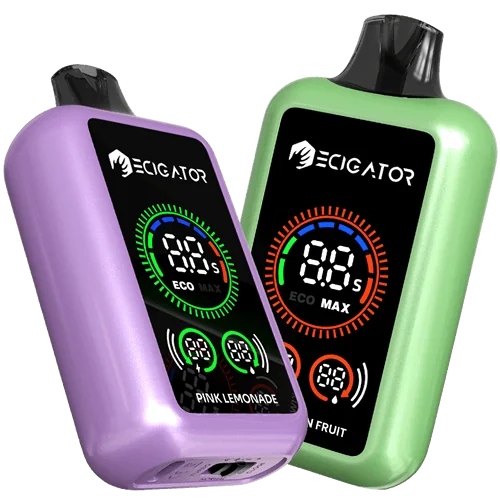
20K with Large Screen
20000 Puffs Disposable Vape with large screen. Normal and Boost working modes.
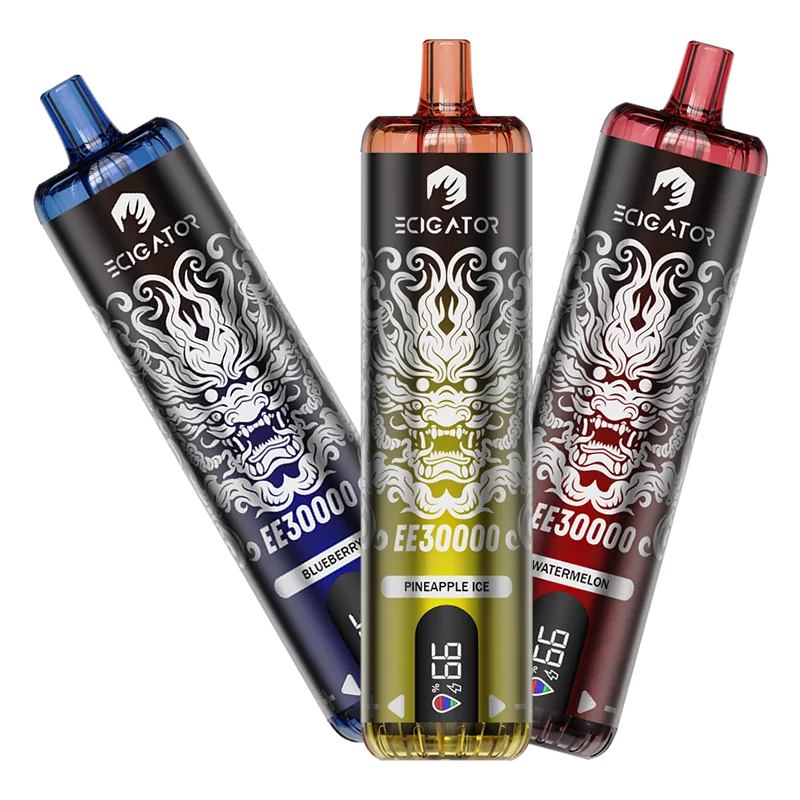
30K DTL Disposable
30K Puffs DTL(Directly to Lung) disposable vape with airflow control and screen.
Taxation and Flavored Product Landscape
Connecticut utilizes taxation as a tool to influence consumption and has a distinct position regarding flavored vaping products.
E-Cigarette Taxation Structure
Connecticut imposes a tiered excise tax on electronic cigarette products4:
- $0.40 per milliliter (ml): This tax applies to e-liquid contained in prefilled, sealed electronic cigarette products that are not intended to be refillable (e.g., disposable vapes, closed-system pods).
- 10% of the wholesale sales price: This tax applies to all other electronic cigarette products, including open-system devices, refillable e-liquids sold in bottles, and other components.
This tax is applied at the wholesale level but is typically passed on to consumers, increasing the retail price. Revenue generated from these taxes often supports the Tobacco and Health Trust Fund, which funds cessation programs and public health education campaigns.
The Status of Flavored Vape Products
A significant point of distinction for Connecticut is its current stance on flavored vaping products. As of mid-2025, Connecticut does not have a statewide ban on the sale of flavored vape products, including fruit, candy, or dessert flavors. This sets it apart from several neighboring states like New York, New Jersey, Rhode Island, and Massachusetts, which have implemented comprehensive flavor bans.
Despite multiple legislative attempts in previous years (e.g., in 2021 and 2022) to enact a statewide ban on flavored vaping products, including menthol, these efforts have not successfully passed into law5. Public health advocates and organizations like the Campaign for Tobacco-Free Kids have expressed disappointment over this, citing the strong appeal of flavored products to youth. While federal FDA regulations restrict unauthorized flavored cartridge-based e-cigarettes (exempting tobacco and menthol), the broader market for flavored disposables and bottled e-liquids remains largely open in Connecticut at the state level, though individual municipalities could potentially enact local restrictions.
Enforcement and Penalties
Connecticut employs a multi-agency approach to enforce its vaping laws, with significant penalties for non-compliance.
- Primary Enforcement Bodies: The Department of Consumer Protection (DCP) handles retailer and manufacturer registrations and violations related to sales practices. The Department of Public Health (DPH) and local health departments are involved in enforcing public use restrictions under the Clean Indoor Air Act. The Department of Mental Health and Addiction Services (DMHAS) oversees the Tobacco Prevention and Enforcement Program.
- Compliance Checks: Law enforcement and regulatory agencies conduct regular compliance checks, often using underage decoys, to ensure retailers are not selling to minors.
- Penalties: As detailed earlier, fines for illegal sales to minors are substantial. Vaping in prohibited public places can also result in fines for individuals (e.g., $50-$100 for a first offense, escalating for repeat violations). Businesses failing to enforce public use bans can also be fined. More severe offenses, such as trafficking untaxed products or selling adulterated liquids with controlled substances, can lead to criminal charges, including felonies.
Read more:
Vaping Laws in U.S. by state
Comprehensive Overview of Connecticut Vaping Regulations
To provide a structured and clear understanding, the following table summarizes the key aspects of vaping laws in Connecticut, highlighting both current regulations and areas of legislative focus.
| Category | Specific Regulation in Connecticut (as of May 30, 2025) | Notes and Context |
|---|---|---|
| Minimum Age | 21 years old to purchase, possess, or be given. | Effective October 1, 2019, aligning with federal age 21 law. Retailers must check ID. |
| Public Use Restrictions | Prohibited in all indoor public places where smoking is banned (workplaces, restaurants, bars, etc.). Prohibited on all school grounds and buildings. | Ensures smoke-free environments and protects youth from exposure. |
| Taxation | $0.40 per milliliter for prefilled, sealed e-liquid; 10% of wholesale price for other e-cigarette products. | Aims to deter use, particularly among youth, and generate state revenue. |
| Flavor Restrictions | No statewide ban on flavored vaping products (including fruit/candy). | Distinguishes CT from many neighboring states. Legislative attempts to ban flavors have not passed. Federal restrictions apply to unauthorized flavored disposable vapes. |
| Sales & Delivery | Retailers must verify age (21+) with valid ID. Online sales require signature and ID verification (21+) upon delivery. Unlawful to sell/give to minors. | Strict enforcement to prevent underage access. Retailers face fines/license suspensions for violations. |
| Advertising & Marketing | Follows federal guidelines prohibiting targeting minors or youth-appealing themes. | Ongoing legislative consideration for further restrictions to limit youth exposure. |
| Legal Consequences for Minors | Minors caught possessing or using may face fines, community service, or license suspension. Schools apply disciplinary actions. | Enforcement aims to deter underage vaping through various penalties. |
| Legislative Efforts | Ongoing consideration of bills to further regulate the industry (e.g., banning sales in pharmacies, near schools, or in multi-unit housing). | The Connecticut General Assembly continues to monitor vaping rates and health impacts, indicating potential future reforms. |
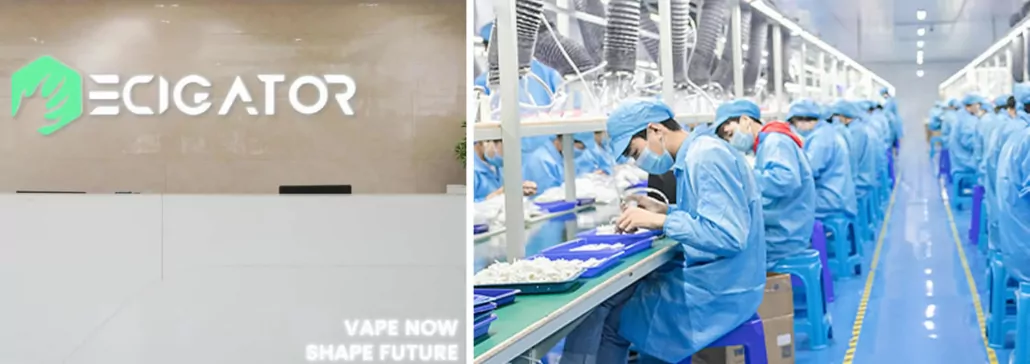
ECIGATOR
Ecigator is one of the well-known vape brands spun off from FM Technology Co., Ltd, it’s an ISO-certified disposable vape manufacturer for OEMs, ODMs, and OBM since 2010. The founder team comes from top firms with more than 10 years of experience in the vaping industry and has devoted thousands of hours to providing users with a better and better experience.
Conclusion: A Tightly Regulated but Evolving Vaping Environment
Connecticut has established a comprehensive and stringent regulatory framework for vaping products, clearly prioritizing public health and the prevention of youth access. The 21+ age limit, extensive bans on vaping in indoor public spaces and workplaces, specific taxation rates, and robust retailer registration and sales requirements create a tightly controlled market. While the state has notably refrained from a statewide ban on flavored vaping products, unlike some of its neighbors, the overall regulatory environment is one of strict oversight.
For consumers, this means being aware of the age restrictions and the numerous locations where vaping is prohibited. For retailers, meticulous adherence to age verification, licensing, product handling, and sales practices is non-negotiable to avoid significant penalties. As public health understanding of vaping continues to evolve and legislative sessions bring new proposals, Connecticut’s vaping laws may see further refinements. Staying informed through official state resources like the Connecticut Department of Public Health and the Connecticut General Assembly website is crucial for all stakeholders to ensure ongoing compliance and responsible engagement with vaping products in the state.
FAQs
Is vaping legal in Connecticut?
Yes, for adults over 21. Those under 21 are prohibited from purchasing or possessing vape products.
What is the minimum age to vape in Connecticut?
21 years old. This applies to purchasing vape products both in stores and online.
Where is vaping prohibited in Connecticut?
Vaping is banned in all smoke-free areas like workplaces, restaurants, bars, hotels, parks, transit, schools and healthcare facilities.
What are the penalties for underage vaping in Connecticut?
Those under 21 caught vaping face fines of $50 to $500, community service, license suspension and mandatory cessation programs.
Does Connecticut tax vape products?
Currently no, but bills have been introduced to establish an excise tax on e-cigarettes and vaping products. None have yet passed into law.
References
- CT Clearinghouse – DMHAS Law Enforcement Officer Cheat Sheet (v9) ↩︎
- Justia Law – Connecticut General Statutes § 21a-415 (Definitions for ENDS and Vapor Products) ↩︎
- Justia Law – Connecticut General Statutes § 31-40q (Smoking or use of tobacco products in the workplace) ↩︎
- CT DRS – Special Notice 2019(7) (Taxation of E-Cigarettes) ↩︎
- CT Mirror – Ban on flavored vaping products fails (May 2022) ↩︎
- Fumot Mate Pod Kit Review: 10,000 Puffs & TPD Legal? - August 10, 2025
- UK Vape Tax Could Push E-Liquid Prices to £40 a Bottle - August 10, 2025
- Minnesota: Northfield Postpones Vote on Flavored Vape Ban - August 10, 2025

